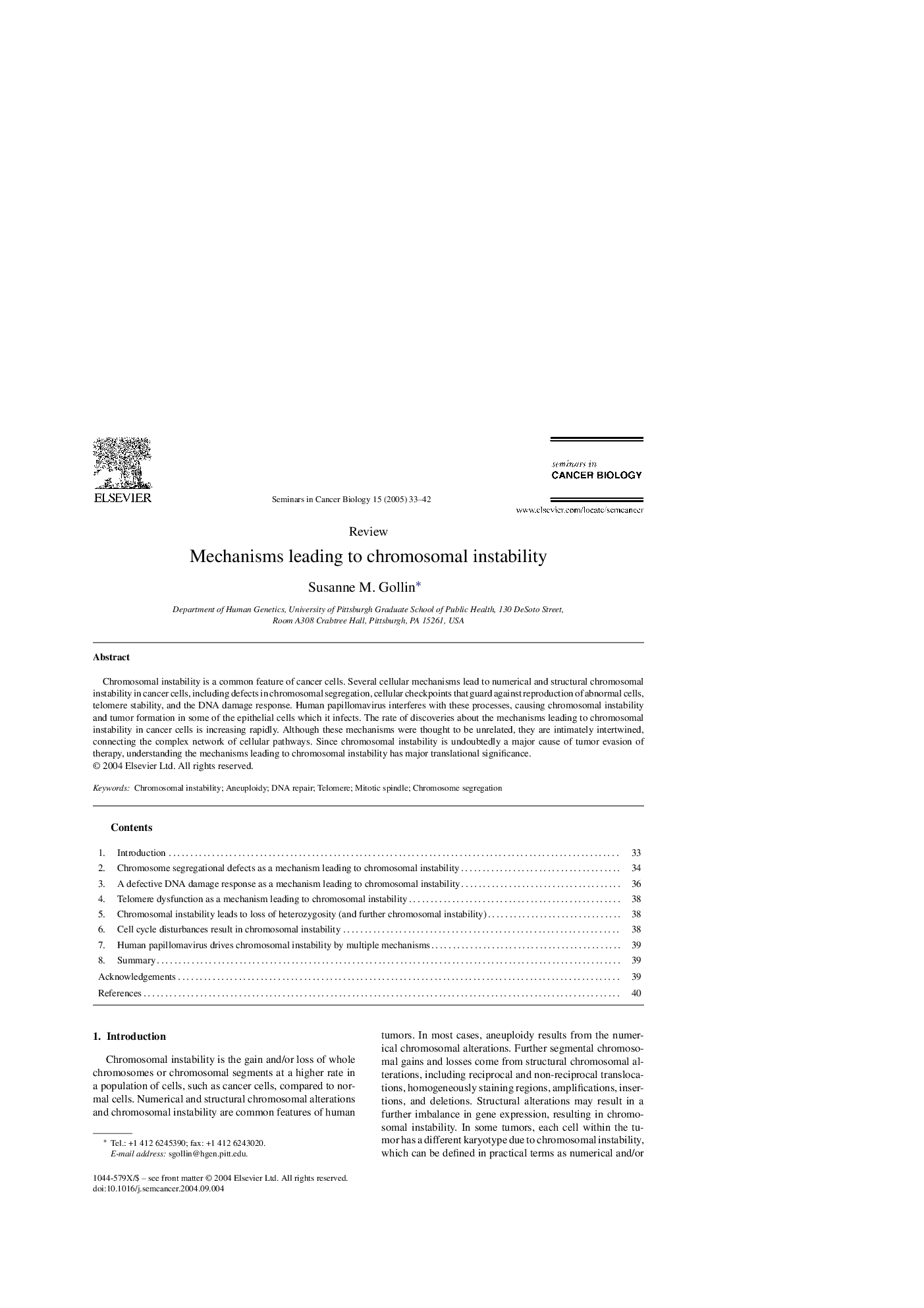| Article ID | Journal | Published Year | Pages | File Type |
|---|---|---|---|---|
| 10845921 | Seminars in Cancer Biology | 2005 | 10 Pages |
Abstract
Chromosomal instability is a common feature of cancer cells. Several cellular mechanisms lead to numerical and structural chromosomal instability in cancer cells, including defects in chromosomal segregation, cellular checkpoints that guard against reproduction of abnormal cells, telomere stability, and the DNA damage response. Human papillomavirus interferes with these processes, causing chromosomal instability and tumor formation in some of the epithelial cells which it infects. The rate of discoveries about the mechanisms leading to chromosomal instability in cancer cells is increasing rapidly. Although these mechanisms were thought to be unrelated, they are intimately intertwined, connecting the complex network of cellular pathways. Since chromosomal instability is undoubtedly a major cause of tumor evasion of therapy, understanding the mechanisms leading to chromosomal instability has major translational significance.
Related Topics
Life Sciences
Biochemistry, Genetics and Molecular Biology
Biochemistry
Authors
Susanne M. Gollin,
